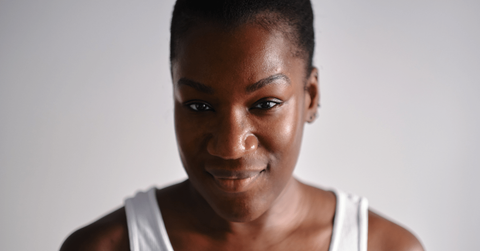Despite having a name synonymous with luck, Clover Hope, has never had to rely on fortune to reach the heights of success.
Typically on the opposite side of an interview, on a busy Tuesday Clover dials in to discuss something that the world rarely gets access to – herself. With an awe-inspiring portfolio that includes interviews with pop culture’s most beloved, co-writing the critically acclaimed Black Is King, and authoring her own book, The Motherlode: 100+ Women Who Made Hip-Hop, Clover’s work has undeniably shaped the past two decades.
As an adolescent, Clover’s obsession with music ran so deep that it became nearly interchangeable with her identity. Alongside her career as a writer, Clover is also a dedicated professor at NYU, passing the torch to the next cohort of writers. And, with an anticipated docuseries based on her book, you can expect to continue hearing Clover’s name, and witnessing the impact of her work for years to come.
Her Agenda recently had the chance to speak with Clover about the hip-hop landscape, the power of writing, and the key to healing.
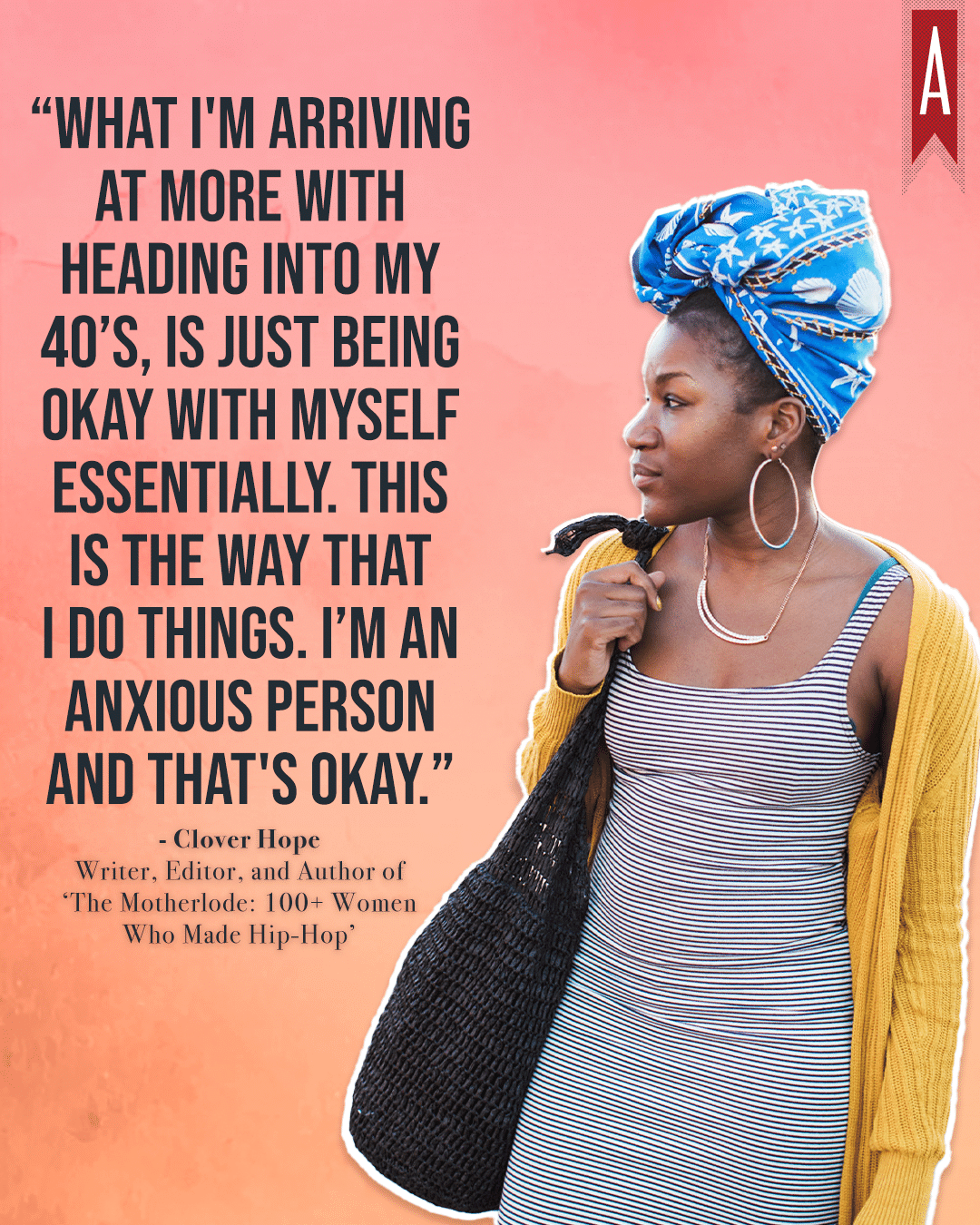
Her Agenda: You had a recent birthday and turned 39! So many women are afraid to enter their 30s because they feel like they’re losing something. But, how have your 30s been important for your growth?
Clover Hope: In terms of growth, I think every era of your life feels like a new phase even though sometimes it can feel cliché. There’s so much progression and evolution as far as knowing myself, knowing what I like and don’t like, what I will tolerate, and don’t want to tolerate [in] work or relationships or friendships. What I’m arriving at more with heading into my 40s, is just being okay with [myself] essentially. This is the way that I do things. I’m an anxious person and that’s okay. It’s about managing [things] versus avoiding them. I’ve felt more of a comfort with myself, my lifestyle, and my work. [There’s] a level of acceptance, not in a way where I can change things, but managing expectations.
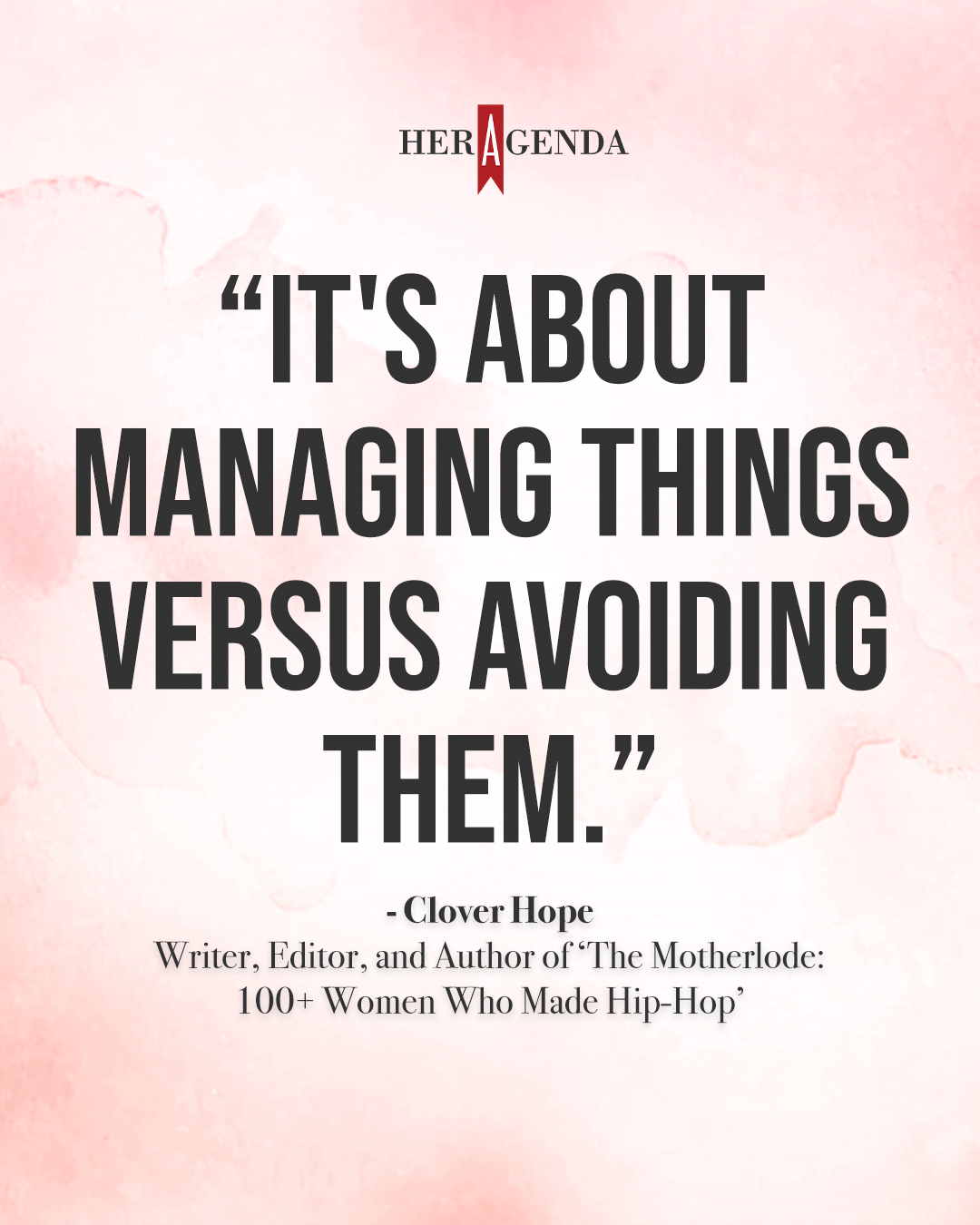
Her Agenda: I can assume how forward-thinking and on-the-go you are, so how often do you remind yourself to be in the moment?
Clover Hope: That’s another thing that with every passing year I try to keep in mind and do more of. Especially if it’s the start of a quarter, everything feels so rushed, and it’s one project after another. After those projects are executed, I have a little bit of downtime. Oftentimes, unfortunately, you realize you should be living in the moment, after the moment. I’m learning to be okay with that because sometimes things move so fast that it’s hard. The times when I live in the moment are usually [during] travel. I try to go on vacation at least once a year, if not, twice. I capture the moments visually but also try to enjoy them.
Her Agenda: The Motherlode: 100+ Women Who Made Hip-Hop is going to celebrate its 2nd anniversary in a few months. Looking back on your project, what are you most proud of?
Clover Hope: With that book, I’m most proud of how expansive it is and also timely. I did put a lot of research and thought into it. I’m glad it was received that way and the intention I put in from the beginning of the project was well received. I didn’t know if people would resonate or if my vision for the book would be something that people would appeal to. I’m glad it came to fruition. I started working on the book 4 or 5 years ago, and now women in hip-hop are having a moment. It was almost destined.
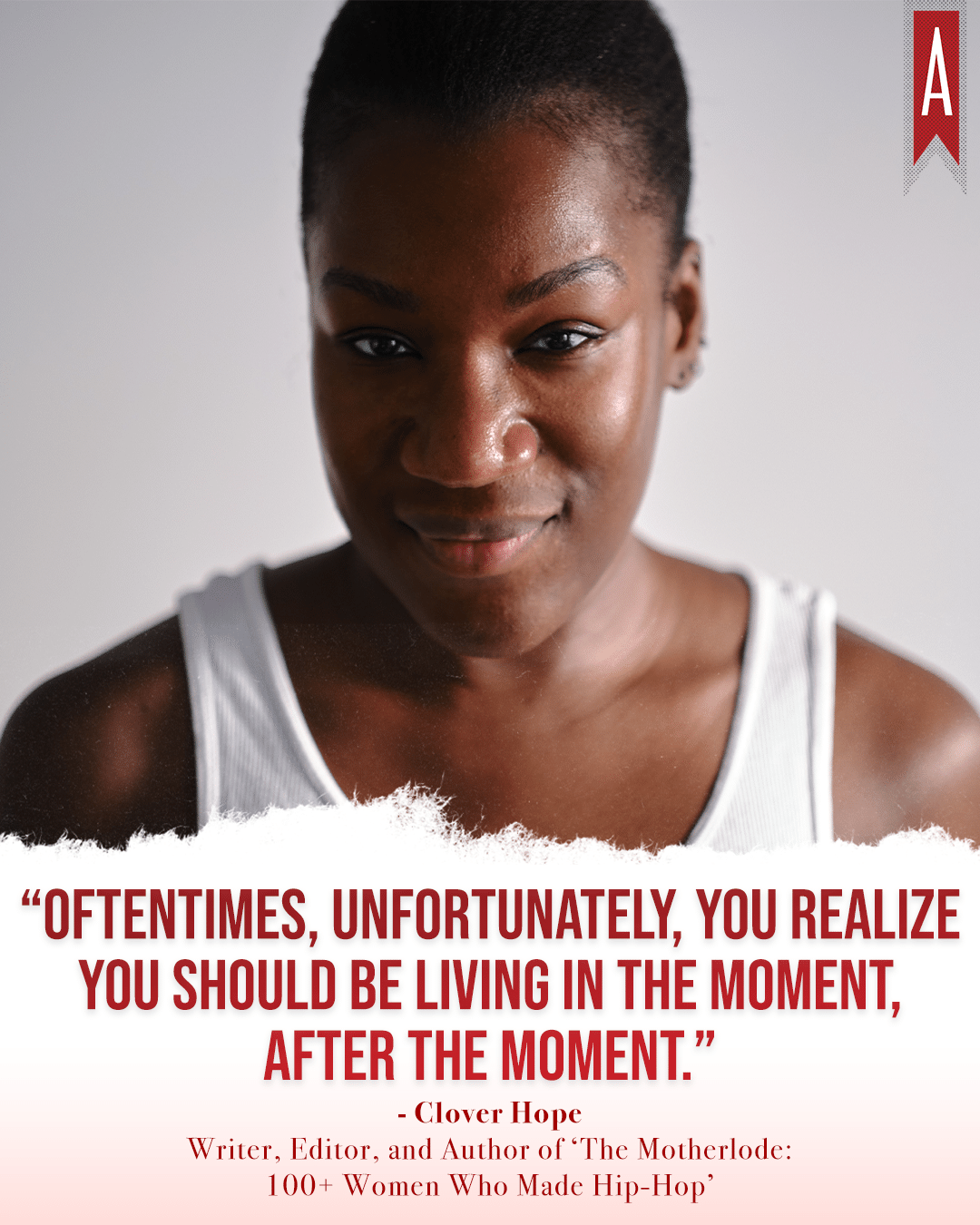
Her Agenda: You are obviously a phenomenal writer and write about hip-hop. But, along your journey, did you ever consider becoming a rapper and writing your own rhymes?
Clover Hope: Not in a serious way. I wanted to do music and my initial plan was to be an engineer in the studio, behind the board. I wanted to produce and be, more so, behind the scenes. Or, be a label executive in some way. I [was] moving in that direction before I shifted into journalism and covering [music]. There were times in college when I would do a silly freestyle [but] that’s the closest I came to rapping.
Her Agenda: Black Is King, which you helped write really helped so many Black people feel seen. Did you know that you were doing something special while you were in the process of it?
Clover Hope: Definitely, yeah. It felt very ambitious and visionary. With certain artists, you go into the project knowing the final project will be expansive and big. Beyoncé is one of those artists. With Lemonade and Homecoming, they [were] events. I definitely felt the magnitude and pressure of that, but I’m glad it was well received in the culture. I knew it would be something special.
Her Agenda: We know that your career entails being a writer, but do you still have a personal relationship with writing in which you write for yourself, like journaling?
Clover Hope: I probably should journal more. When I had a blog, I used to do it for posting my creative inspiration. I do little notes here and there, like sentences, that I’ll think of that don’t have anything to do with an assignment I’m working on or something out of the ordinary. When I was younger, I used to write poetry all the time, like when I was 13, and that was my expression. Now that I do it for work, it’s harder to work that muscle, but it’s important to be creative outside of assignments.
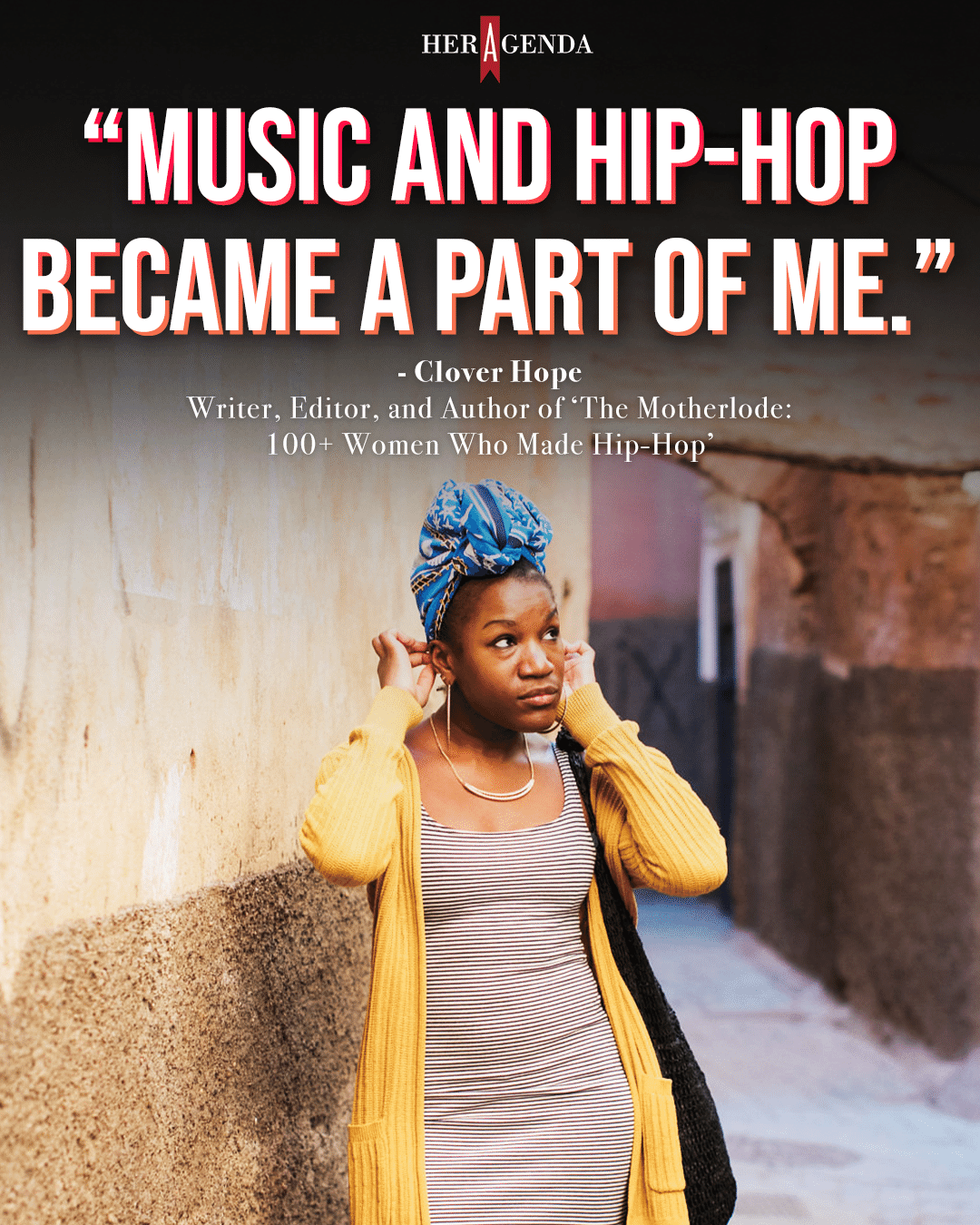
Her Agenda: What is your process like for researching someone that you are interviewing or a piece that you are writing?
Clover Hope: I keep researching to the point where I feel good and prepared enough to go into the interview without having to read the questions. I’ll come up with questions on the basis of what I want to know, but I’m writing for other people to read, so it’s also what the general public wants to know about this person. My goal going into conversations, like celebrity interviews, is a certain intimacy that is very hard to get in the matter of an hour. I do want to get a little existential or psychological and get introspection beyond the projects they’re working on. Get a sense of who they are when no one’s around.
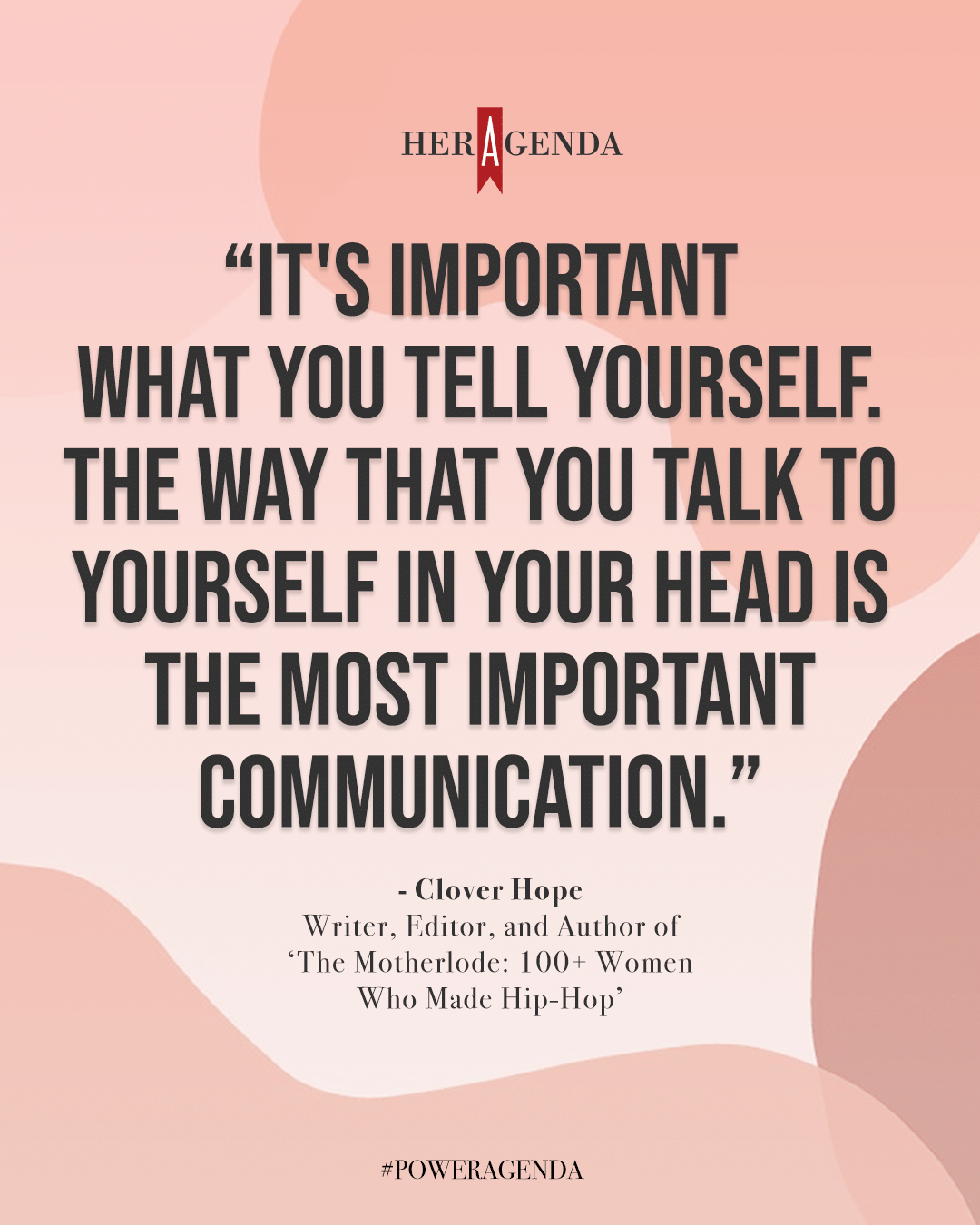
Her Agenda: You’ve been writing about hip-hop for about 20 years now. What’s your opinion on the hip-hop landscape today?
Clover Hope: I think I’m just a fan in a different way. It’s hard to be as immersed in it as when I was 13 and learning myself, the music I liked, and which artists I liked. Those are your formative years when everything that comes out, or happens, seems like it’s for you. It felt like DMX, Trina, and Missy, and Lil Kim were a part of me and were fusing with my DNA in some way. Like, when a baby is growing, they are adapting to an environment and that stuff becomes a part of them. In that way, music and hip-hop became a part of me. It’s a different experience engaging with it. I know when a younger artist comes out and their sound is not for me. I’m still a huge fan of the culture and certain artists, but I know my immersion into hip-hop is more grown.
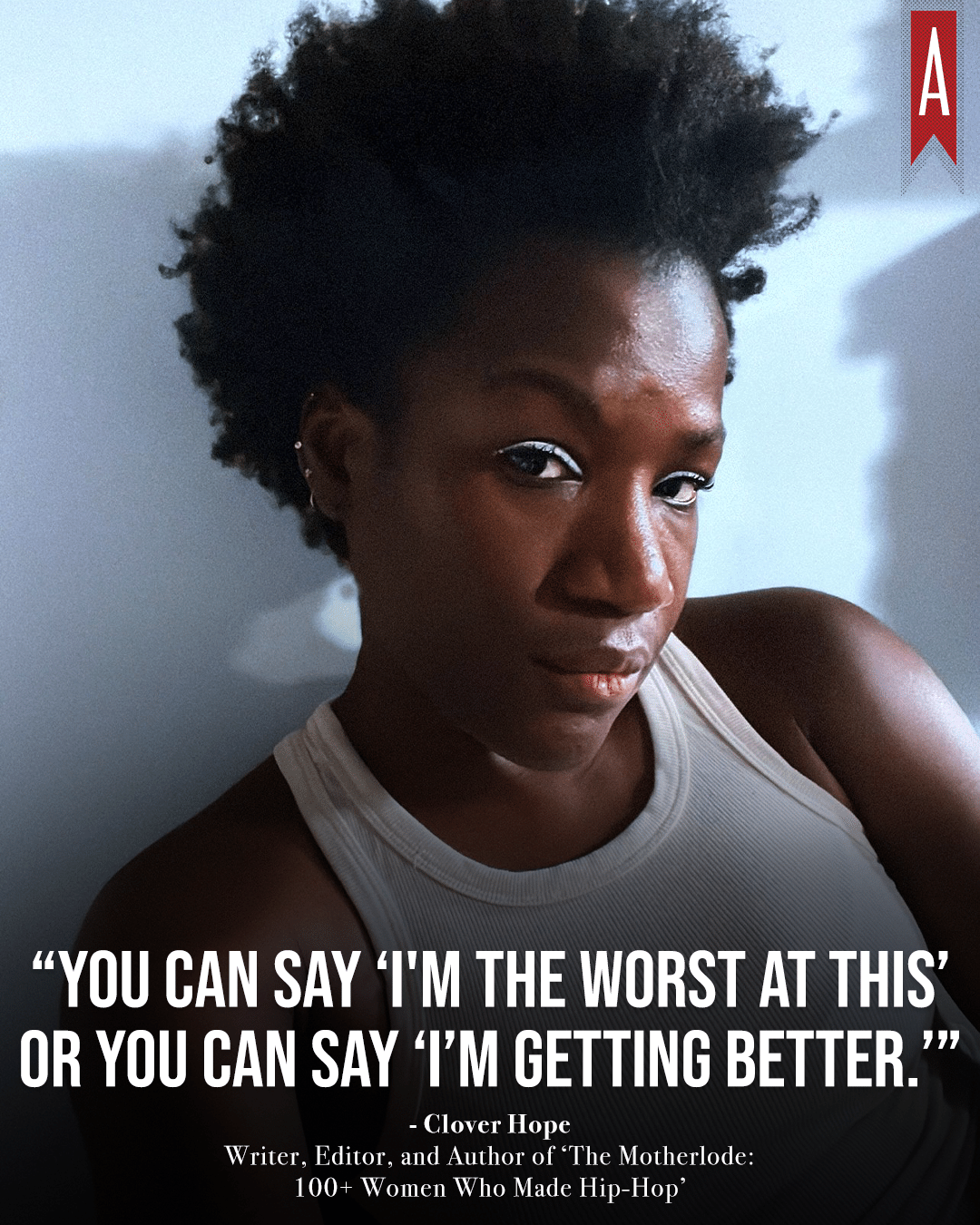
Her Agenda: In your amazing Kid-Cudi interview for Esquire, you penned his philosophy which is, “Love is the answer. It is gonna hurt you at times, but it’ll heal you, too.” So, for my last question I want to ask you, throughout your journey in life, what is the one thing that has helped you heal the most?
Clover Hope: I think the thing that has helped me heal the most is communication. Not just with other people but with myself. It’s important what you tell yourself. The way that you talk to yourself in your head is the most important communication. You can say “I’m the worst at this” or you can say “I’m getting better.” That reframing is important for self-confidence and self-improvement. That’s how I’ve been able to heal through a broken relationship or a job that I didn’t get. It’s about what I tell myself. I can have some control over how I’m perceiving things and that feels good.
[Editor’s note: This interview has been edited for length and clarity.]

